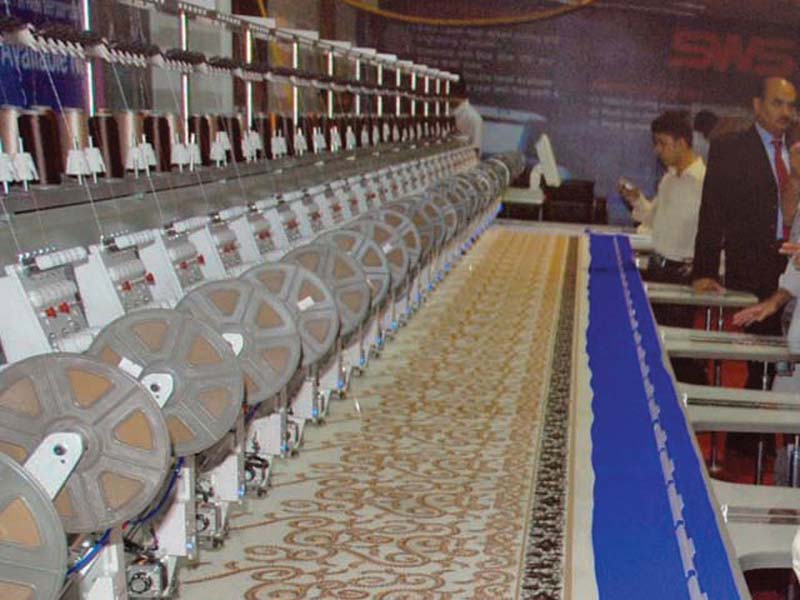
The crux of the matter is that factors that inhibit growth of the engineering goods industry are not indecipherable.
Alarming: Pakistan’s exports plunge to 4-year low
Any expert in the field, when inquired as to what benefits can be reaped by engineering goods exports, will start his answer thus: It is a vital engine of growth in all successful countries.
Obviously, a sector aiming to be the engine of growth in a country has to be built on research and development (R&D) and encouraging policies. A look at this sector’s growth in the US, China and India will shed light on the policies that facilitate it.
The central role as a lead catalyst that the manufacturing sector played to provide the much needed ‘oomph’ to these countries is sufficient evidence for anyone to conclude: Let us stop all other campaigns for making Pakistan a success story and make sure that the amount of foreign exchange and jobs created by this sector is our primary focus.
Textile sector: Identifying causes for low exports
The Indian engineering goods exported last year amounted to $70 billion, facilitated largely by a three-pronged policy. Firstly, imports of engineering goods are discouraged. Secondly, the sector is financially supported. And lastly, excessive public sector import of engineering goods is heavily penalised.
The Buy America Act 1930 of the US punishes imports made from taxpayer money even if the local engineering goods are more expensive or technically poorer than the imported products.
China applies the same policy to this sector in order to not only safeguard millions of jobs in the engineering goods sector but also increase such jobs.
Pakistan has shut market access routes for itself
However, the situation in Pakistan can be best exemplified by two traditional approaches. Firstly, local supplies to public sector organisations are discouraged. Secondly, imports are made with impunity, even the goods that are of far lower quality than the Pakistani products, and can thus add little in way of welfare, are ordered to fleece the taxpayer and to ensure kickbacks, especially on goods imported from China. It is the easiest to get kickbacks from exporters of that country by over-pricing the goods.
It is no secret that public officials share a large part of the kickbacks and no legal regulations are in place to arrest such criminal trend.
The Engineering Development Board (EDB) received a letter from the Islamabad Chamber of Commerce and Industry (ICCI) dated November 9, 2015. The letter highlights a member company’s complaint against a government organisation’s preference for imported truck-mounted rigs rather than procuring them from the local company.
China wishes to shift industries to Pakistan: Iqbal
Upon inquiry, the company’s (Best Engineering Solutions) Chief Executive Officer Abdul Majid Ghauri explained that he had written numerous letters to a number of government organisations to stop the practice of import preference but to no avail.
Ghauri added the main buyers of engineering goods in Pakistan are the state-run organisations. These organisations are neither legally nor administratively restrained from resorting to imports even if the local companies can offer the products and services they need, at far cheaper rates and in better quality.
Imports also incur taxes and duties that are not payable on locally produced and supplied goods.
Declining exports
Ghauri lamented that certain state organisations, both federal and provincial, indulged in criminal activities to encourage imports and discourage procurement from local producers and assemblers.
EDB officials, when approached, confirmed that there is no operational legal clause penalising imports by the public sector organisations. They also confirmed that there is no mood in the relevant official quarters to insert such a clause into the legal framework.
The writer has worked with major newspapers and specialises in analysis of public finance and geo-economics of terrorism
Published in The Express Tribune, November 16th, 2015.
Like Business on Facebook, follow @TribuneBiz on Twitter to stay informed and join in the conversation.
1731570357-0/elon-musk-(1)1731570357-0-405x300.webp)
-(1)1717678110-0/Kendrick-(1)-(1)1717678110-0-165x106.webp)















COMMENTS (6)
Comments are moderated and generally will be posted if they are on-topic and not abusive.
For more information, please see our Comments FAQ